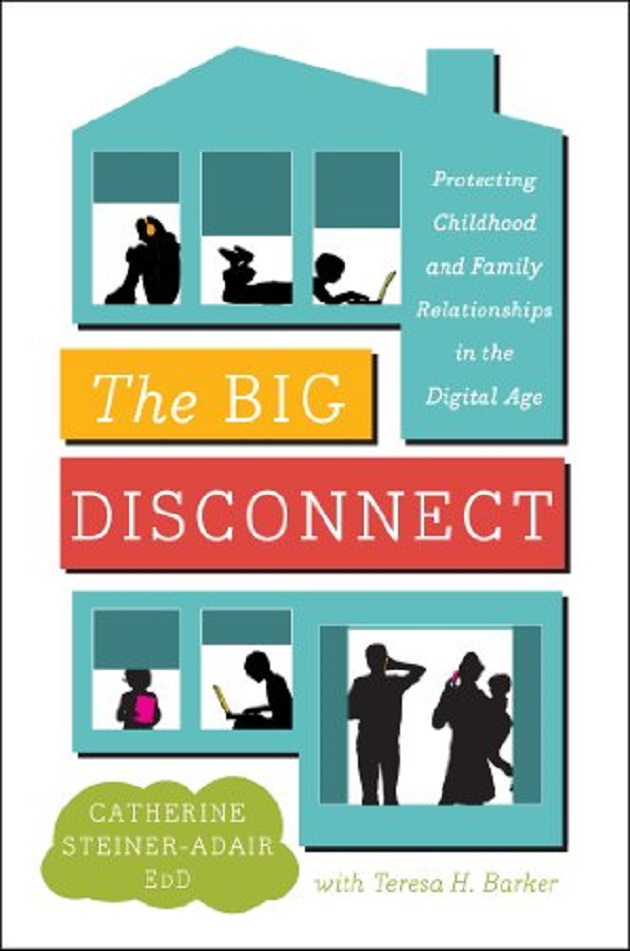Technology is fast encroaching on family primacy and we are seeing an increasingly premature loss of childhood innocence. The author encourages parents to be approachable, calm, informed and realistic.
![Photo: [link]Steinar Engeland[/link], Unsplash, CC0](https://cms.evangelicalfocus.com/upload/imagenes/5f082ffff183c_steinar940.jpg) Photo: [link]Steinar Engeland[/link], Unsplash, CC0
Photo: [link]Steinar Engeland[/link], Unsplash, CC0
“Scary, Crazy and Clueless”: these are the labels the author uses to characterised common, unhelpful parental responses to challenges young people have negotiating adolescence in a digitally dominated age, based on interviews with over a thousand children in recent years.
‘Scary’ parents feel too intense, too judgemental, too rigid, too harsh – this tends to be the result of a major divergence between the young person’s actual feelings and the parent’s assumptions about them. As a result, ‘scary’ parent tends to throw their weight around and appear aggressive. The child often feels that they are not being listened to or cannot make themselves heard.
‘Crazy’ parents tend to amplify the drama or emotion of any given situation. Children report that the ‘crazy’ parents tend to escalate every challenge regardless of significance, which teens find unsettling and ultimately establishes barriers between the parent and the child.
‘Clueless’ parents struggle to grasp what is going on. They don’t know how to react. Parents demonstrate ‘cluelessness’ either when they fail to grasp what is happening or they become completely overwhelmed. The author has also seen ‘cluelessness’ as the result of abdication of parental responsibility for setting boundaries in favour pursuing ‘friendship’ with their child above all else.
The author’s plea is that as parents we learn to be ‘Approachable, Calm, Informed, Realistic’ so that we can support our children effectively. The book offers practical steps looking at the whole of our lives and the lives of our children – so we lay the foundations that enable us to stand with our children more reliably.
The Big Disconnect starts by presenting a view of the digitally dominated childhood that no previous generation has had to contend with. We have no guidebooks as parents. We will make mistakes. The author’s goal is to try to share the wisdom she has gleaned from her years working as a clinical psychologist in schools and running therapy sessions. Our belief is Catherine Steiner-Adair’s hope – that there is plenty we can do – much of it relatively straightforward though sometimes requiring a little courage, to improve the situation.

[photo_footer] Cover of the book. [/photo_footer]
The author highlights eight critical issues we need to grasp, if we are going to understand the impact of technology on our children:
The Big Disconnect takes the reader through the developmental stages from birth to early adulthood, exploring the capabilities and needs of children as they grow up along with the impact of technology on their development. Having a clear mirror held up to our own lives sometimes makes for uncomfortable reading. Like any good therapist, Catherine Steiner-Adair, manages to avoid any sense of condemnation while highlighting issues that we and many others may be struggling with.
As the title suggests, the author argues strongly that the first two years of life gain little from significant exposure to technology and screens. What these tiny humans need is fully-engaged contact with the significant humans around them. It is that committed investment that will help maximise their growth and sustain the intense neurological development that takes place at this age.
She warns us not to be seduced by the instant gratification the screens – large or small, seem to offer; or the rapt attention they seem to command. She challenges us as adults to consider the impact of our own screen use and distraction on our children, even in these early years. For any who have watched the distressing videos of ‘Still Face’ psychology experiments we can begin to get a sense of the impact of our feeble attempts at multitasking can have on our new family members.

[photo_footer] Author Catherine Steiner-Adair.[/photo_footer] Kids love the high-octane stimulation the get from screen-based devices. Both the author and the research she cites acknowledge that these tools are engrossing, but they doubt whether the experiences and skills developed are of great value.
Carers are best placed to provide the fully engaged, fully human environment which our toddlers need to lay the crucial foundations for emotional literacy. Compared to the children of 10 years before (the book was written around 2004), preschool-age children are reportedly, more impulsive, less practiced at waiting their turn in play or discussion and slower to pick up on the need for it in the group setting.
Catherine Steiner-Adair offers a plea for children to be given time to explore more traditional forms of play and creativity – out of doors, running, dancing, singing, conversing, imagining – and to spend less time consuming passively: that we protect ‘the magic of “the Magic Years”’.
It seems like children are being exposed to ever more adult content with few filters applied. Very young children parrot behaviours they have seen on TV or on YouTube, repeating the phrases and behaviours they hear and see there. In some ways, this is how it has been for decades.
Today the difference is that it is likely somewhere in our children’s social circle, someone will have access to content that is suitable for much older children and who is sharing it actively. In our own experience, we have the introduction of ‘tablets’ as a required tool for the curriculum for Year 5. Suddenly, a rash of children appear (aged 9 or so) turn up with (usually public) TikTok accounts. The same might be true for Instagram, SnapChat or WhatsApp. They are “In over their heads: Too much, Too soon, Too Fast”. One of the side-effects of this exposure ….is that the “Gender Code starts younger, sexier and more aggressive than ever”.
“Hanging out, messing around and geeking out.” : this is the title of an early study exploring young people's everyday digital media practices by Mimi Ito et al. published in 2009. For Catherine Steiner-Adair, the middle school years (which maps onto this age group) have historically offered a “holding tank”; “a contained educational space designed to see kids through puberty when academic endeavour can hardly compete with the roiling physical and emotional action of the age.”
She goes on to say, “The Internet blew the gates off this holding tank and swept us all out to cyber sea …. Now with laptops and smartphones, texting, sexting and online social networking we have lost all control, transforming what traditionally had been a de facto if unheralded rite of passage through a physical, social, emotional and developmental metamorphosis into an online spectator sport.”
We as parents are challenged to engage positively and actively with our children to understand what sites they are visiting, what communities they are joining and to provide an open environment where our children can discuss the things they like, and the things that concern them that they come across online. “They [your children] need you to be curious and clear, to set limits and to be flexible.’
This chapter covers some of the most challenging years for parents. Technology hasn’t made navigating these ages any easier. “Adolescence has always been characterized by emotional intensity, impulsivity and risk-taking, the bid for autonomy, the quest for identity and the desire for intimacy, sexual and otherwise. To the teen, tech is the perfect accessory.” The author calmly unpacks the ‘instant everything’ that tech offers; the way that it ‘deletes the pause between impulse and action’, from which many of the harms originate.
The focus on text-based interactions almost wipes out any level of emotional nuance. She explores the ways that teens present a façade; what they consider the projection of their ‘best selves’ to their community and the people they consider their closest friends. She highlights the dangers that the emerging obsession with image – causes for both girls and boys.
Throughout the book, the theme of ‘nastiness’ that taints so much digital interaction is developed. In the teenage years, this has the potential to cause serious harm. Steiner-Adair suggests that the relentless fare of Gossip Girl-styled TV series; helps normalise a level of vindictive ‘getting even’ that teens tend to copy IRL (in real life). The Big Disconnect explores how Tech impacts most of the challenges of the teen years; particularly reminding us of the permanent nature of digital footprints. As an antidote to this gloom, she brings plenty of stories of hope as well as those of challenge and pain.
We introduced these labels at the start of this review. Parents need to be seen by their children as trustworthy and approachable. Scary, Crazy and Clueless parents are the antithesis of this. The author illustrates these behaviours and shows how damaging they can be.
She underlines the need for parental integrity in the small matters, if we want our children to follow us in the bigger issues of life. She then provides some examples of how families were able to move past this stage and begin to redeem their relationships.
She advocates a different kind of journey – one where we can be approachable, calm informed and realistic. “Watch what you say. Don’t add to the drama. Practice, practice, practice.” We are learning how to deal with digitally influenced development – we need to be comfortable that we are learning too.
Catherine Steiner-Adair is trying to help families turn technology into an ally for closeness, creativity and community. This takes some clear thinking and commitment. “But it [our society] is halfway towards forgetting that children need childhood. Those who insist on remembering shall perform a noble service.”1
The author recommends that parents ask themselves, “What values do I want my children to end up with as adults, and am I living the lifestyle and teaching the lessons that embody these values?”
This is the starting point for our work with families at TechHuman. We want to help families develop and maintain the answers that work for their own lives and priorities; responding to the specific needs of their children and families. Working through these questions will result in our using technology with greater intent, more precision and purpose – while reducing the quantity of aimless or unfocused consumption.
The author believes we need to find ways to play together more; to invest heavily in conversation, particularly dialogue that shares “feelings, values, expectation and optimism.” We need to develop language that connects us with our past, looks to the future and can be shared with our friends and families. We need to learn to develop a regular practice of digital downtime. Looking across at Andy Crouch’s recommendation; “So one hour a day, one day a week, and one week a year, we turn off our devices and worship, feast, play and rest together.”2
Catherine Steiner-Adair has written a compelling, thoughtful book. It is well constructed, for the most part easy to read, and wise.
She blends her experience with extensive research offering hope for parents who are struggling to remain connected with their digitally-influenced children. This book has provided some foundational thinking for how we want to help families take advantage of this digital age; and overcome some of its challenges.
Jonathan Ebsworth, Technology management consultant, co-founder of TechHuman. This article was first published on TechHuman.org and has been re-published with permission.
NOTES
1. The Disappearance of Childhood, Neil Postman 1982, ISBN 9780679751663
2. The Tech-Wise Family, Andy Crouch, 2017, ISBN: 9780801018664

Las opiniones vertidas por nuestros colaboradores se realizan a nivel personal, pudiendo coincidir o no con la postura de la dirección de Protestante Digital.
Si quieres comentar o